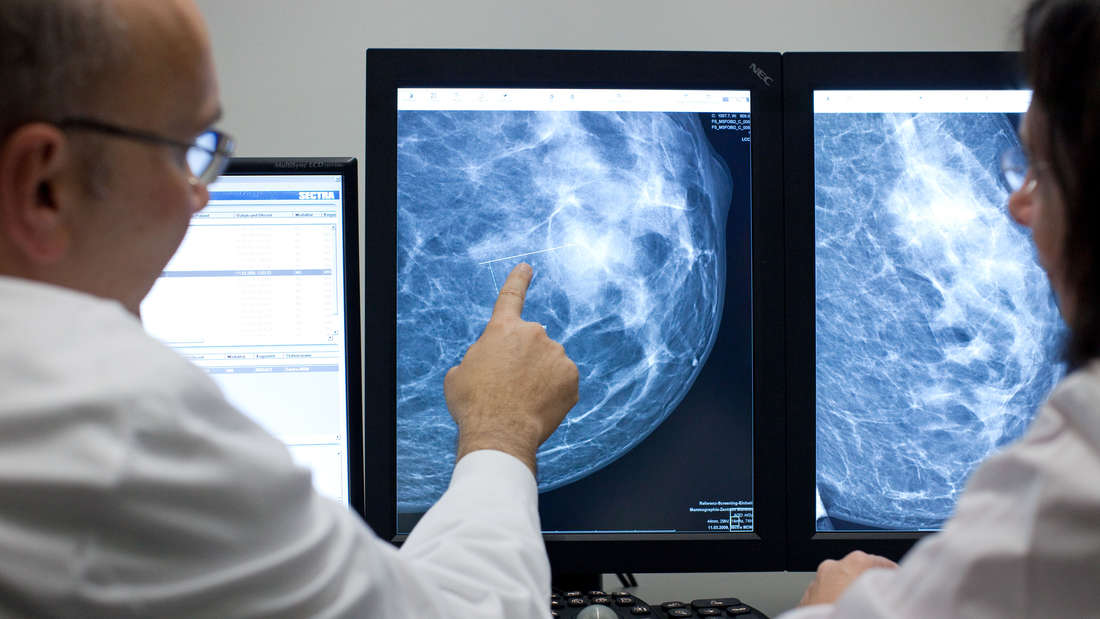
There are many myths and theories about cancer. But only some of them are true. The Most Common Rumors in Fact Check.
Kassel – When it comes to illness, many people turn to the internet instead of going to the doctor. Search engines provide thousands of hits, only a few of which even provide valid information and none can replace an expert medical opinion. The line between nonsense and reality is often blurred, and crazy rumors and theories are spread. Same with cancer.
Symptoms of cancer are not always obvious. According to their Internet research, those affected are generally more vulnerable than previously thought. To enable you to separate insanity from information in the future, the German Cancer Research Center’s information service has examined and questioned the most common cancer myths. Everything you need to know about this disease at a glance.
Cancer Myth Abortion: Does Abortion Increase the Risk of Breast Cancer?
breast cancer is one of them most common cancer in women, There is a rumor on the internet that abortion will increase the risk of breast cancer. The basis for this assumption were supposedly scientifically based studies from the United States. However, the thesis that abortion leads to a higher risk of breast cancer has never been supported by the data presented. It is also questionable whether breast cancer and miscarriage are in any way linked.
But how did this myth come about in the first place? In the United States, the debate about abortion boils over again and again. The German Cancer Research Center believes it is possible that anti-abortion anti-abortion wanted to use the study for their own purposes and started the rumor to downplay abortion protests.
The Cancer Myth Brasier: Should Women Avoid Bras?
In addition to abortion, it is often claimed that wearing a bra that is too tight also promotes breast cancer. The reason for this is said to be the closure of the lymphatic system, which prevents the washing away of metabolic waste products. However, there is no scientific source or study on the myth.
avoid breast cancer
To prevent breast cancer, the Working Group on Gynecological Oncology recommends adequate exercise, about 3 to 5 hours of brisk walking per week. Avoiding alcohol and smoking also helps. Hormone replacement therapy should be avoided. In addition, a balanced diet with lots of fruits, vegetables and fiber and low in fat and meat is essential.
Experts agree that women with a hereditary risk of breast cancer can also reduce their individual overall risk through a healthy lifestyle.
So experts agree: Wearing bodices doesn’t seem to affect breast cancer risk, whether they’re too tight or fit well, with or without an underwire. A study by the American Cancer Journal Cancer epidemiology, biomarkers and prevention Confirmed that there is no connection.
Cancer Myth Diet: Some Foods Cause Cancer
Nutrition is more important than ever in the world. In addition to recommendations for weight loss or muscle building, there is also a long black list of foods that are said to increase the risk of cancer. One thing should be clear: There is no such thing as a cancer diet. Rather, there is general malnutrition. These include, among others:
- high alcohol consumption
- lots of red meat
- lots of processed meat
- some vegetables
- small fruit
According to the Helmholtz Association’s Cancer Information Service, however, it is not usually about the ingredients of the food. Instead, the focus will be on “too much, too thick, too sweet.” Nevertheless, discussions about pollutants entering food through industrial processes remain important. Although consumers can never be completely sure, the quality of food in Germany is very high and is monitored by the nationwide food watchdog.
In principle, the German Cancer Research Center recommends never allowing yourself to be pressured by well-intentioned but unreasonable dietary warnings. An illness can serve as a reason for you to reconsider your diet, but it is not advisable to overexert yourself – especially if your appetite is already suffering from illness or medical conditions. Cancer initiative “Decade Against Cancer” has developed a nine-point plan for healthy eating, to help fight cancer,
Cancer Myth Prevention: Do the Pill and Sterilization Promote Cancer?
The pill has a profound effect on the hormonal balance of women. It comes with a long list of side effects. But is it also associated with an increased risk of cancer? The answer is double-edged. According to the German Cancer Society, taking birth control pills slightly increases the risk of getting breast cancer, but the risk of dying from breast cancer does not. On the other hand, the pill will significantly reduce the risk of developing ovarian or endometrial cancer. Stiftung Warentest has tested and tested various contraceptives – including the birth control pill: Nur Half of all products are recommended,
Sterilization has long been suspected of increasing the risk of cancer. In women, the matter is clear: the link between dissection of the fallopian tubes and cancer has not yet been proven. On the other hand, for men, it is more complicated. While tubal tubing does not increase the chance of testicular cancer, there are studies that suggest a possible increased risk of prostate cancer. According to the German Cancer Research Center, however, most physicians and experts consider vasectomy to be safe.
Cancer Myth Cosmetics: Are Makeup and Deodorant Carcinogenic?
Beauty products have been the subject of criticism for some time now. consumer centers such as Co-test always detects carcinogenic substances in Cosmetics. But are the pollutants contained in sufficient quantities to be considered risk factors? The supposedly dangerous ingredients are often so-called parabens, which are used as preservatives. There is a rumor that substances can accumulate in fatty tissue. This can lead to breast cancer in women.
It is clear that the chemical group can have a hormone-like effect. So far, however, this has only been proven by animal experiments and only with very high doses of parabens. Whether preservatives increase the risk of breast cancer in humans is not yet completely clear. The Federal Institute for Risk Assessment (BFR) recognizes that parabens cannot be easily replaced in all beauty products. Substitute products would greatly increase the risk of allergies for consumers. Without preservatives, protection against dangerous germs and pathogens is not guaranteed in many care products. (aa)

Web guru. Amateur thinker. Unapologetic problem solver. Zombie expert. Hipster-friendly travel geek. Social mediaholic.




